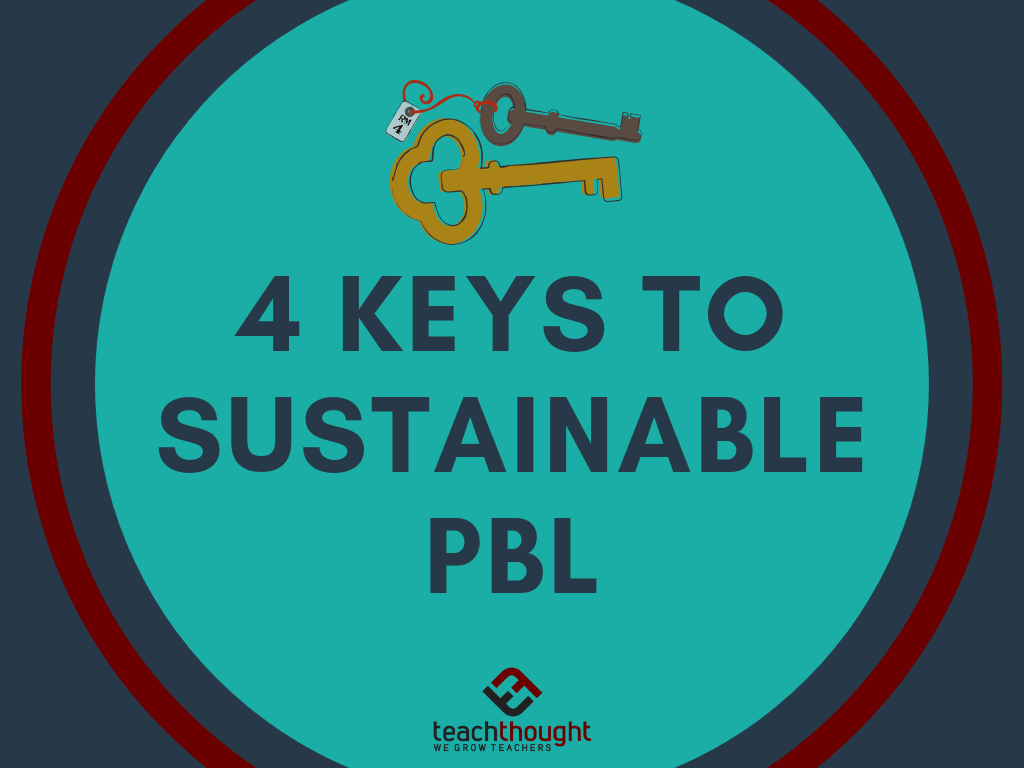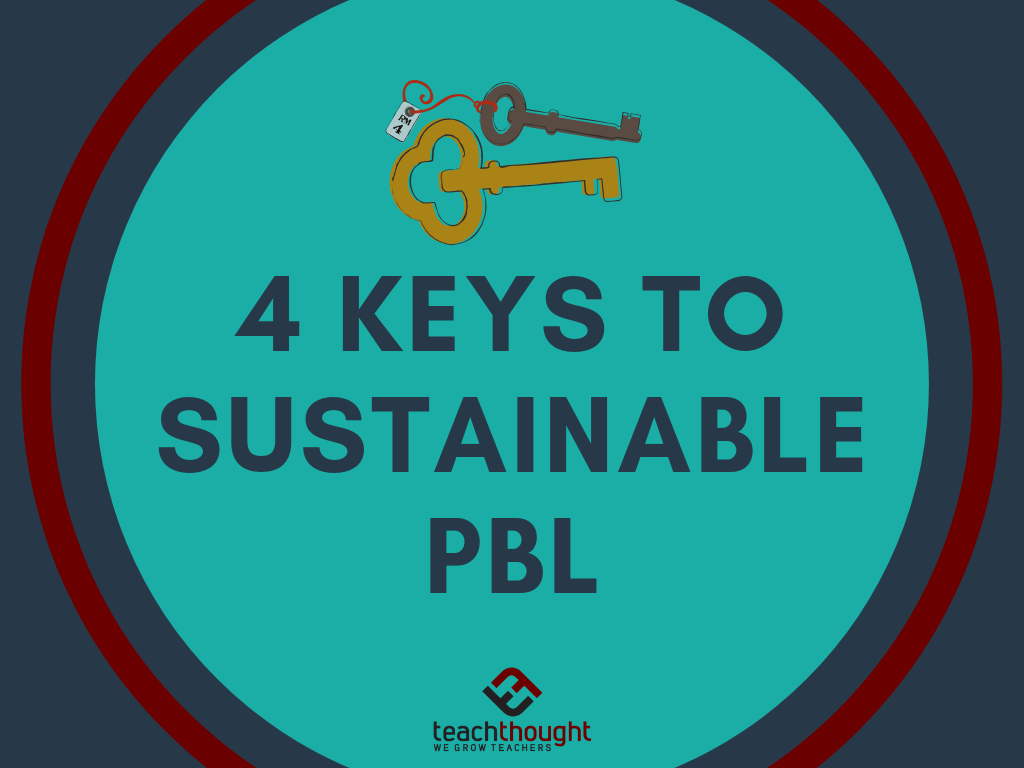
What Are The Keys To Sustainable School-Wide PBL?
contributed by Drew Perkins
How can we create a sustainable PBL implementation plan?
That’s the question we use to help school leaders lay the foundation for introducing and growing project-based learning in their school or district. Inherent in that question are the questions about quality that we pull out as things we need to know and learn about in order to do this well. Questions like:
- What is quality PBL?
- Why is PBL important?
- What happens if things go wrong?
- How might we know if things are going wrong?
- What things that we currently do will help us sustain it?
- What things that we currently do might need to change to sustain it?
- What should our implementation timeline look like?
There are certainly more but this process of modeling the PBL process is at the heart of our work as we model best practice in our workshops and ongoing support.
Because the process of implementing PBL is just that, a process, we prefer and highly recommend working with leadership to set the stage for success. With that in mind these four keys can help this shift take root meaningfully instead of just “doing a workshop”.
1. Leadership Should Have At Least A Basic Understanding of PBL
All too often school administrators schedule workshops for teachers but don’t participate. We get it, education leadership is a busy job, but if you’re an actual instructional leader it would make sense to have an understanding of the pedagogy you’re hoping to see in practice. This extends to being able to effectively do parts of your job like evaluation (more on that later) but in our experience when admin exhibits a PBL Mindset for Leadership and actually practice what they preach the impact is significant.
2. Plan For Short And Long-Term
Our Foundations of Project-Based Learning Workshops are a great starting point but hoping for that spark to start a beautiful bonfire will take some intentionality otherwise it’ll more likely blow out like a candle when even the lightest breeze passes through.
We’ve highlighted some of the questions you’ll want to consider in this process but a big part of helping teachers become comfortable with this shift is transparency and recognition that you’ll expect some bumps along the way. Asking teachers to start small, experience success, reflect and growing over several years signals that this won’t be a flash in the pan initiative while honoring the professionalism of successful teachers.
3. Evaluate Your Systems, Practices, and Curriculum
When I was in the classroom trying to teach through PBL I was often frustrated by the things put in place by the school and district that made it more difficult. To be fair, they weren’t yet supporting PBL but taking an honest look at your systems, practices, curriculum is vital to success. What are you doing that might support PBL?
What might make it harder for students, teachers, and parents to engage in this kind of learning? How are you assessing and evaluating students? How are you assessing and evaluating teachers? How are your class schedules or course catalogs supporting PBL? What rules and regulations might need to be changed? There’s more to this but you get my drift.
4. Clarify and Align With Your Mission and Vision
A consistent teacher complaint about professional development is that they develop fatigue because initiatives and programs come and go so frequently. To help schools with this we highly suggest aligning your PD by clarifying your purpose or mission vision and turning it into a question.
From there we can unpack what we need to know and do in order to support that mission, modeling the PBL process to help teachers and stakeholders see it from another angle all the while including their voice in a way that helps get them pulling in the same direction.
We love helping schools make the shift from more traditional teaching towards PBL and place a heavy emphasis on doing it well. In many of the same ways that traditional teaching done poorly can be disastrous so can the constructivist, inquiry-based teaching and learning of PBL.
We believe in the power of PBL to help students learn important knowledge and skills more deeply but just hosting a workshop with your teachers is only the first step. Great school leaders acknowledge the process takes patience, intentionality, and steady vision that stays the course.
